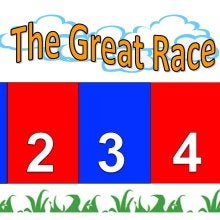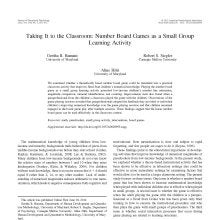

The Great Race Board game
Keep Educating
The Great Race Board Game
Dr. Geetha Ramani at the Early Childhood Interaction Lab at the College of Education has developed a fun at-home board game for young children to learn numbers and practice counting. The game is based on her research that shows that playing number board games and card games can help young children learn about math.
The Great Race Board Game is a printable game board and pieces for you to print and play with your child.

Download The Great Race Board Game
About the Early Childhood Interaction Lab
Our lab is directed by Dr. Geetha Ramani and is located in the Department of Human Development and Quantitative Methodology at the University of Maryland, College Park. We are also a member of the Infant and Child Studies Consortium at UMD.
Our research focuses on understanding how young children’s social interactions with adults and peers influence their cognitive development. We are also interested in how play and informal learning activities can promote children’s thinking in the areas of mathematics, problem solving, and planning. We invite you to learn more about our research projects and our research team.
Featured Faculty

Dr. Ramani's research: Taking It to the Classroom: Number Board Games as a Small Group Learning Activity

Keep Educating main page